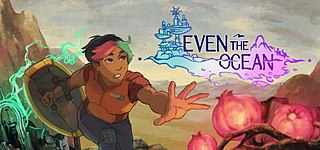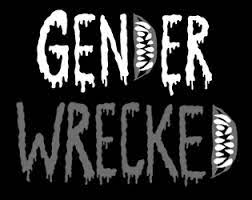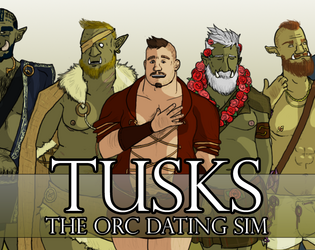
Watchmen is a comic book limited series by the British creative team of writer Alan Moore, artist Dave Gibbons and colorist John Higgins. It was published monthly by DC Comics in 1986 and 1987 before being collected in a single-volume edition in 1987. Watchmen originated from a story proposal Moore submitted to DC featuring superhero characters that the company had acquired from Charlton Comics. As Moore's proposed story would have left many of the characters unusable for future stories, managing editor Dick Giordano convinced Moore to create original characters instead.

Yuri, also known by the wasei-eigo construction girls' love, is a genre of Japanese media focusing on intimate relationships between female characters. While lesbian relationships are a commonly associated theme, the genre is also inclusive of works depicting emotional and spiritual relationships between women that are not necessarily romantic or sexual in nature. Yuri is most commonly associated with anime and manga, though the term has also been used to describe video games, light novels, and literature.

The Devil, appears frequently as a character in literature and various other media, beginning in the 6th century when the Council of Constantinople officially recognized Satan as part of their belief system. In Abrahamic religions, the figure of the Devil, Satan personifies evil. In music, the Devil is referenced in most music genres. Connecting the devil to certain music can be used to associate the music with immorality, either by critics or by the musicians themselves. In television and film, the Devil has a long history of being used and often appears as an extremely powerful, purely evil, antagonist. He also may appear working behind the scenes, in disguise, or in secrecy to influence a story in the forefront. In narrative works, the Devil is often associated with concepts such as the Antichrist, Hell and the afterlife, and the apocalypse. Especially in media from the early 1900s, creators might have been compelled to portray the Devil with another name or in a non-classical fashion to skirt censorship laws that discouraged showing the Devil as a character. Occasionally the Devil appears not as an entity but rather is used as a name for something that is very sinister or malevolent in a narrative such that the characters feel it is the Devil.

An indie role-playing game is a role-playing game published by individuals or small press publishers, in contrast to games published by large corporations. Indie tabletop role-playing game designers participate in various game distribution networks, development communities, and gaming conventions, both in person and online. Indie game designer committees grant annual awards for excellence.
A motion comic is a form of animation combining elements of print comic books and animation. Individual panels are expanded into a full shot while sound effects, voice acting, and animation are added to the original artwork. Text boxes, speech bubbles and the onomatopoeia are typically removed to feature more of the original artwork being animated. Motion comics are often released as short serials covering a story arc of a long running series or animating a single release of a graphic novel. Single release issues of a story arc are converted into ten- to twenty-minute-long episodes depending on content.
David Vincent Baker is a designer and theorist of tabletop role-playing games and the owner of indie role-playing games publisher Lumpley Games, which also hosts the archives of The Forge. He and his wife Meguey Baker designed Apocalypse World, the first game in the Powered by the Apocalypse system. Apocalypse World won Game of the Year, Best Support, and Most Innovative game at the 2010 Indie RPG Awards, and was 2011 RPG of the Year at both the Golden Geek Awards and Lucca Comics & Games. Baker also designed Dogs in the Vineyard, which won the 2004 Indie RPG Game of the Year and Innovation Award and was one of three games shortlisted for the 2004 Diana Jones Award.

itch.io is a website for users to host, sell and download indie video games, indie role-playing games, game assets, comics, zines and music. Launched in March 2013 by Leaf Corcoran, the service hosts over 1,000,000 products as of November 2024.

Nina Marie Freeman is an American video game designer known for her games with themes of sexuality and self-reflection. A former game designer at Fullbright, she developed and published numerous video games and is a co-founder of the Code Liberation Foundation, a non-for-profit organization that makes an effort to diversify employment within STEAM fields.

One Night Stand is a visual novel video game developed by Kinmoku. Players take the role of a man who wakes up from a drunken one-night stand beside a stranger and must piece together the events of the previous night. It was based on a free game Kinmoku wrote for a game jam at itch.io. One Night Stand was released for PC in 2016, and Nintendo Switch, PlayStation 4 and Xbox One in 2019.

Even the Ocean is an action-adventure platform video game developed by Analgesic Productions. The game was released on November 16, 2016 on Steam, itch.io, GOG.com, and Humble Store, for Microsoft Windows and Mac OS X.

Doki Doki Literature Club! is a 2017 visual novel video game developed by Team Salvato for personal computers. The story follows a student who reluctantly joins his high school's literature club at the insistence of his friend Sayori, and is given the option to romantically pursue her, Yuri, or Natsuki. Club president Monika also features heavily in the game's plot. The game features a non-traditional plot structure with multiple endings and unlockable cutscenes with each of the main characters. Although it initially appears to be a light-hearted dating simulator, it is actually a metafictional psychological horror game that extensively breaks the fourth wall.
Momodora is a series of indie platformer video games developed by Guilherme "rdein" Martins and his studio Bombservice. The series follows several priestess heroines who utilize magic maple leaves as weapons against monsters and other cursed entities. The series consists of five games: Momodora I, Momodora II, Momodora III, Momodora: Reverie Under the Moonlight, and Momodora: Moonlit Farewell.

Butterfly Soup is a visual novel developed by Brianna Lei and published in September 2017 for Windows, macOS, and Linux. The game has the player follow the perspectives of four LGBT Asian-American girls in Fremont, California, alternating between their first year of high school in 2008 and when they were young children. The coming-of-age story shows them as they join a baseball club and centers on the romance between the main character, Diya, and her friend Min.

Heaven Will Be Mine is a sci-fi romance visual novel developed by American studios Pillow Fight Games and Worst Girl Games for Windows, Mac, Linux, and iOS. The story is set in an alternate history post-Cold War universe wherein humanity has split into three warring factions, known as the Memorial Foundation, Cradle's Graces, and the Celestial Mechanics. Over the course of the game the player, through combat interactions with the other two faction pilots, can gradually push one of these three factions toward dominance over space and humanity's future.

Butterfly Soup 2 is a visual novel developed by Brianna Lei and published in October 2022 for Windows, macOS, and Linux. It is the sequel to the 2017 Butterfly Soup, and begins shortly after the conclusion of the first game. It has the player follow the perspectives of four LGBT Asian-American girls in Fremont, California, alternating between their first year of high school in 2009 and when they were young children. The coming-of-age story centers on the romance between Akarsha and her friend Noelle, their struggles with their parents' expectations and influence, and their experiences as second-generation immigrants.

Tax Heaven 3000, abbreviated as TH3K, is a Japanese-styled dating simulator game released by American art collective MSCHF which helps the player prepare their federal income taxes. The game was released in March 2023 in preparation for the 2022 tax deadline by making the player go on dates with the protagonist in which they input personal information required to generate a tax return.

Genderwrecked is a 2018 video game created by independent developers Heather Flowers and Gendervamp, the pseudonym of Ryan Rose Aceae. Described as a "post-apocalyptic genderpunk visual novel", Genderwrecked is a work of interactive fiction in which the player is invited to explore themes and issues around gender through the comic representation of monsters. The game was developed by Flowers and Aceae using the Ren'Py visual novel software as a personal expression of their own experiences. Upon release, Genderwrecked received praise from several publications, with critics praising the game's balance of humor and earnest discourse on gender and identity. Following release, Genderwrecked received the 'Jury Award' at the Melbourne Queer Games Festival in October 2018, and was briefly showcased by the Smithsonian American Art Museum.

Tusks: The Orc Dating Sim is a 2018 visual novel and dating simulator by Scottish independent developer Mitch Alexander. The game sees the player accompanying and romancing a band of travelling orcs. First published in 2015 for a game jam, Alexander based the design of the game on his native Scotland and his own experiences, with a desire for the game to subvert queer stereotypes by deconstructing the orc archetype in fantasy literature. Tusks received attention from several publications upon the release of its demo, with critics praising the inclusive design of diverse body types in a dating simulator game, and the relevance of its themes characterisation to broader queer experiences and identities.















